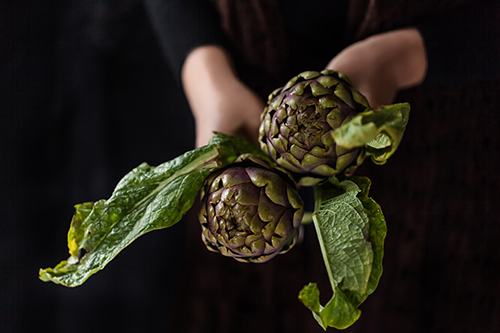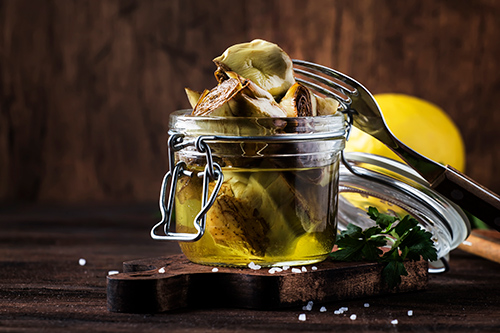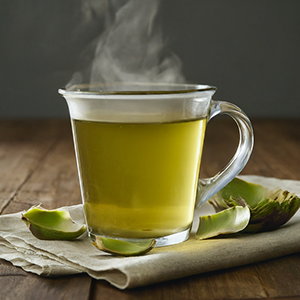Artichoke health benefits have been known since the 16th century, when it was highly regarded as an aphrodisiac. However, it was not given much attention as a medicinal herb and did not achieve great prestige as a remedy for hepatic and biliary diseases until the mid-20th century. Because of its notable medicinal actions on the liver and the body, artichoke extracts are part of the composition of several medicines.

Scientific Facts
- Scientific Name: Cynara scolymus L.
- French: Artichaut.
- Spanish: Alcachofa.
- Environment: Common in Mediterranean countries but cultivated in warm regions worldwide.
- Description: Plant of the Compositae family, growing up to 1.5 m high, with large, growing up to 1.5 m tall, large, segmented, greyish-green leaves and violet flower heads surrounded by bracts (false leaves) with an edible base.
- Parts of the plant used medicinally: The leaves, stem, and root of the plant and the flower heads (artichokes).
Health Benefits

The active components of artichoke, which concentrate mainly in its leaves, are cynarine (a bitter component) and flavonic derivatives of lutein. The plant is rich in enzymes, inulin (a sugar relatively well-tolerated by diabetic people), potassium, and manganese. Although the excellent artichoke, that is to say, the flower head of the plant, also shares the aforementioned medicinal properties. The plant’s leaves, stems, and roots should be used to achieve an essential therapeutic effect. The properties of the artichoke plant are as follows:

- Choleretic (increases bile secretion) and hepatoprotective (antitoxic), artichoke is recommended for dyspepsia, biliary colic, and hepatic insufficiency. It is also highly recommended in the case of hepatitis.
- Hypolipemic: The plant decreases the level of cholesterol in the blood and other lipids, making it recommended for arteriosclerosis.
- Hypoglycemic: Artichoke is an excellent food for people with diabetes due to its inulin content. It promotes a decrease in the level of sugar in the blood.
- Diuretics, depuratives, and urea are eliminated. They are very appropriate for albuminuria and kidney insufficiency.
How to use Artichoke
- Infusion of leaves, stem, and root: 50 to 100 grams per liter of water. If possible, drink three cups daily before meals.
- Fresh juice, prepared with the leaves. Drink a glass with every meal.
- Dry extract: If the sour flavor of infusions or juice is not tolerated, the recommended dose is one or two grams daily.
DISCLAIMER: All content on this website is presented solely for educational and informational objectives. Do not rely on the information provided as a replacement for advice, diagnosis, or treatment from a qualified medical expert. If you are pregnant, nursing, or have any preexisting medical concerns, talk to your doctor before using any herbal or natural medicines.
REFERENCES
- George D. Pamplona-Roger, M.D. “Encyclopedia of Medicinal Plants.” George D. Pamplona-Roger, M.D. Encyclopedia of Medicinal Plants. Ed. Francesc X. Gelabert. Vols. 1 San Fernando de Henares: Editorial Safeliz, 2000. 387. Print. [artichoke health benefits]
- https://pubmed.ncbi.nlm.nih.gov/12675767/
- https://pubmed.ncbi.nlm.nih.gov/31276793/
